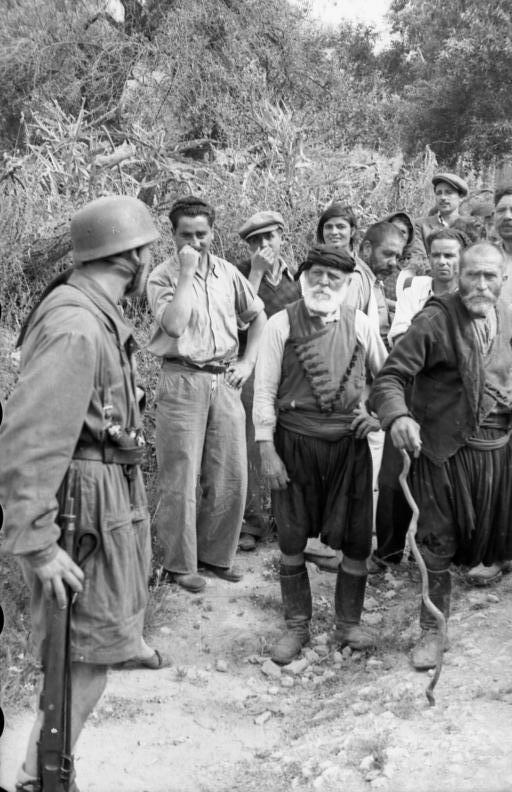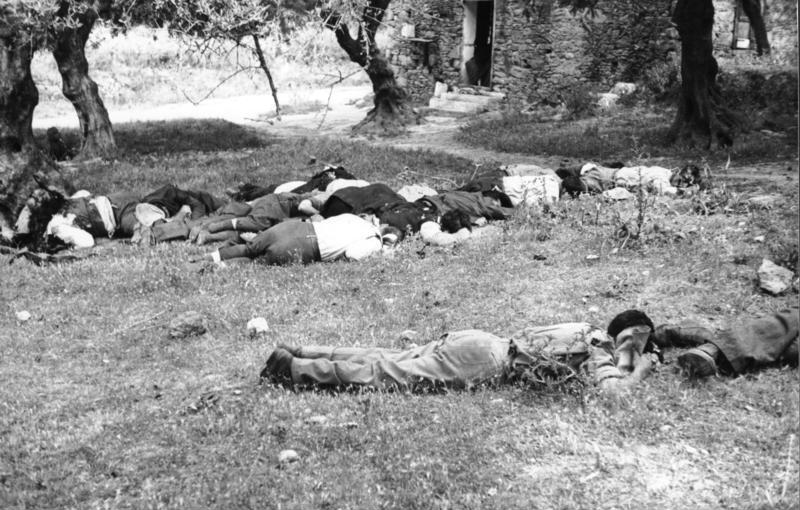I decided to start this topic today, posting from now themes related with Greece and WW2, as today is the commemoration of the victory in Greece. On October 28, 1940, Greece entered the war, as Italy invaded her territory. The reasons Greece is not celebrating Victory Day in May are two:
Firstly, in May 1945, Greece was already in civil war, so there was no room and mood for celebrations.
Secondly, and most important, one of the first Resistance acts was the mass celebration of this date on October 28, 1941, while Greece was occupied by the Axis Powers. The popular sentiment established this day unofficially as a Remembrance Day, and after the war it was officially declared by the state as a national holiday.
Greek Intelligence Services and the diplomatic corps had knowledge of the imminent Italian invasion since mid-1940, so the entire armed forces, state machinery and society were preparing for war. On October 28, 3:00 a.m. the Italian ambassador woke up the dictator of Greece, Ioannis Metaxas, to present him an ultimatum demanding the free passage of Italian armies in Greece. Metaxas rejected the ultimatum, answering in French “Alors, c’est la guerre!” (“So, this is war!”).
Italian armies invaded through Albania at 5:30 am and the population woke with this radio announcement from the general staff:
Translation: “Here is Athens Radio Station. We are transmitting the first announcement of the Greek General Staff. Since 05:30 this morning, the enemy is attacking our vanguard on the Greek-Albanian border. Our forces are defending the fatherland.”
Immediately a general mobilization was implemented, which went according to plans. The people heard the news with confidence, and joy. At the same day, more than 1.000 Italian spies were arrested.
Photos from the first day of the war
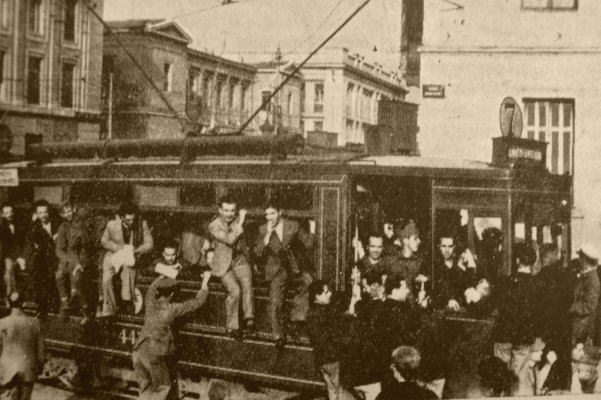
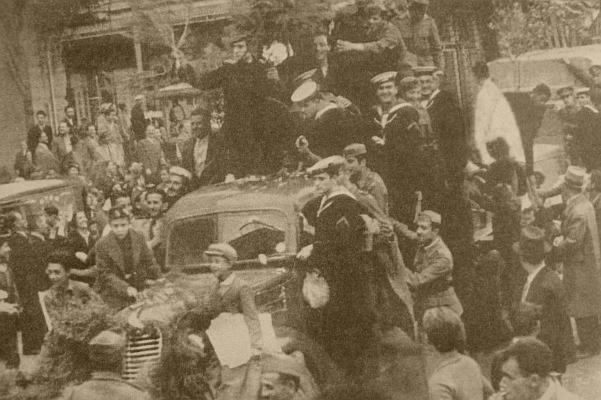
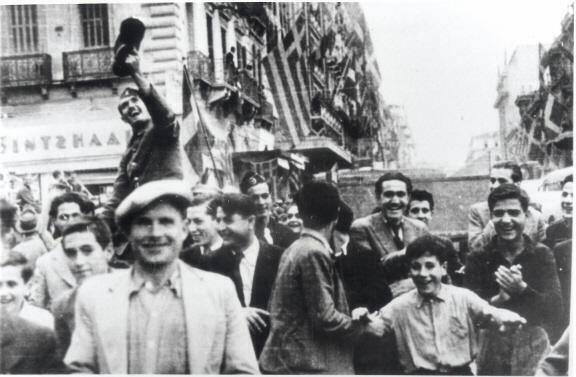



https://i.imgur.com/pIZ5hjJh.jpg
Videos from the first day:
The confidence of the people was justified at the end, as Greece emerged victorious against Italy, forcing Hitler to intervene in April 1941. After 2 months of severe battles, Greece was subjugated in late May.
Ultimately Greece was one of the nations who suffered the most in the war, losing around 10% of her population (military deaths, partisan deaths, deaths from starvation, extermination of the Greek-Jews, killings of civilians by the Axis, Civil War’s casualties are not counted) and almost her entire infrastructure, but not her pride for her contribution to the Allied victory against Fascism and Nazism.
P.S. A photo from this morning’s military parade in Thessaloniki. The President of Greece (right), with the President of Italy (left), Sergio Mattarella. Matarella became the first Italian President taking part in Greek War commemorations and the first Italian president who officially apologized to Greece, on behalf of Italy, for her war conduct in World War 2…
https://cdn1.bbend.net/media/com_news/galleries/2018/10/28/49441/photos/full/parelasi-8.jpg






